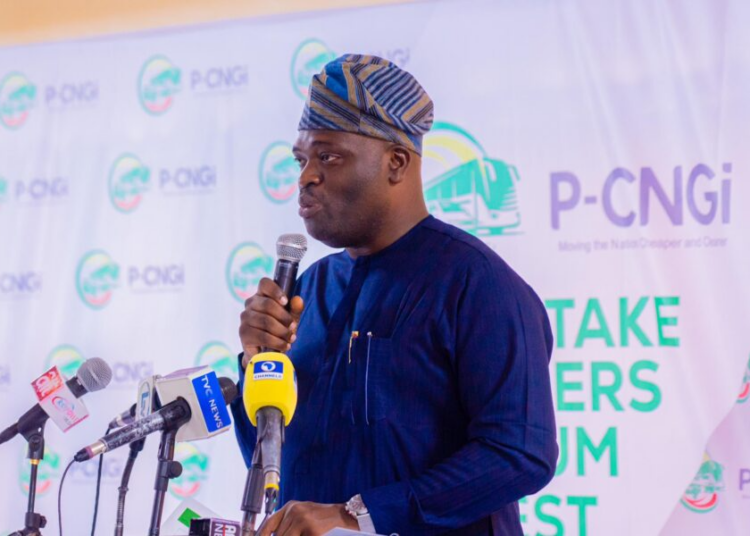The price of Compressed Natural Gas (CNG) in Nigeria has experienced a substantial increase, jumping from N230 to N450 per standard cubic meter (SCM). This surge follows a government review of CNG pricing, effectively reducing the subsidies previously in place. While the official price for trucks stands at N450/SCM, car owners and commercial drivers benefit from a reduced rate of N380/SCM, maintaining a degree of government support for this alternative fuel. This tiered pricing structure has been implemented to mitigate the impact of rising fuel costs on transportation prices, aiming to prevent further burdening commuters and businesses reliant on commercial vehicles. The Presidential Compressed Natural Gas Initiative (PCNGI) confirmed this price adjustment, highlighting the government’s ongoing efforts to balance affordability with the need for market viability in the CNG sector.
The differentiated pricing strategy for CNG aims to strike a balance between encouraging adoption of the alternative fuel and managing the economic realities of its provision. While truck owners bear the full cost of N450/SCM, the subsidized rate of N380/SCM for commercial and private car drivers intends to cushion the impact on public transportation and everyday commuters. This targeted subsidy approach reflects the government’s awareness of the potential ripple effects of higher transportation costs on the broader economy. However, it simultaneously raises concerns about the long-term sustainability of such subsidies and whether they might hinder the development of a robust and competitive CNG market. Attracting investment in CNG infrastructure requires a pricing structure that can support profitability, and the current subsidy model might be viewed as a disincentive for private sector participation.
Beyond pricing, the primary focus of the PCNGI remains on expanding CNG infrastructure, particularly the number of refilling stations nationwide. The current scarcity of refilling stations leads to long queues and discourages the adoption of CNG, even among those who have invested in converting their vehicles. The PCNGI aims to address this critical bottleneck by accelerating the development of new refilling stations, ensuring convenient access to CNG for vehicle owners across the country. The goal is to eliminate the reliance on petrol as a fallback option for CNG vehicle owners facing shortages, fostering greater confidence in the reliability of CNG as a viable alternative fuel source. The expansion of refilling infrastructure is crucial not only for increasing CNG adoption but also for creating jobs and stimulating economic activity in the sector.
Despite the government’s efforts to promote CNG as a cheaper alternative to petrol, concerns are mounting that the rising prices and persistent queues might deter potential users and even lead existing users to revert to petrol. The cost of converting a petrol-powered vehicle to CNG can be substantial, often exceeding N1.5 million. Coupled with the recent price hikes and the inconvenience of long queues, the economic advantages of CNG are diminishing, potentially undermining the government’s initiatives. Some vehicle owners are expressing frustration and disillusionment, questioning the government’s claim of CNG being a significantly cheaper fuel option. The long queues, sometimes stretching up to 1.5km, are a significant deterrent, further eroding public confidence in the feasibility of CNG as a readily available and affordable alternative.
The government’s justification for the price increase is linked to attracting investors and ensuring the sustainability of the CNG market. The argument is that maintaining artificially low prices through subsidies is not a viable long-term solution. The earlier subsidized pricing was viewed as a temporary measure to incentivize adoption, and the eventual price adjustments were anticipated. Marketers argue that current prices still reflect a level of subsidy, with projections suggesting further increases to N500 or even N600/SCM in the near future. This upward trend in CNG prices underscores the inherent tension between affordability for consumers and the need for a profitable market that can attract the necessary investment for expansion and improvement of CNG infrastructure.
The government’s promotion of CNG as a cheaper alternative to petrol following the removal of fuel subsidies formed a key element of its strategy to mitigate the impact on consumers. The significant price jump of petrol from N175 to N870 per liter prompted the government to highlight CNG as a viable and more affordable option. Efforts to encourage conversion of petrol-powered vehicles to CNG were accompanied by claims of substantial progress, citing a significant increase in the number of CNG-powered vehicles and conversion centers nationwide. The government underscored the job creation potential of the CNG sector and highlighted its commitment to expanding the network of refilling stations. However, the recent price hikes and persistent challenges related to infrastructure raise questions about the long-term efficacy of the government’s CNG strategy and its ability to deliver on its promises of a truly affordable and accessible alternative fuel source for Nigerian citizens.














